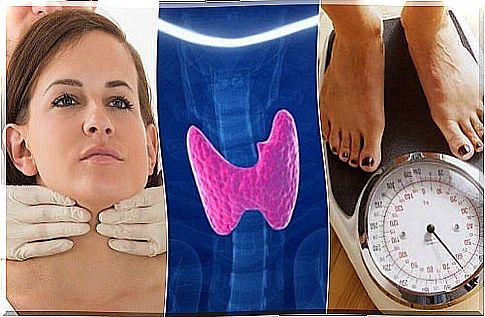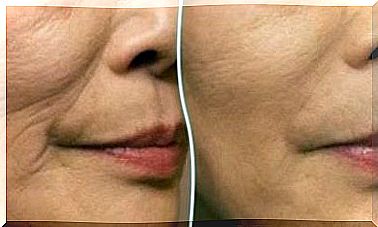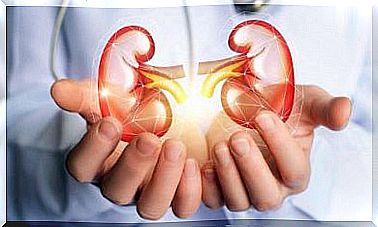10 Signs Of Hypothyroidism

Hypothyroidism is a disease that affects the thyroid gland. It is manifested by a low secretion of thyroid hormones, and hyposecretion can lead to various imbalances. Learn how to recognize the 10 signs of hypothyroidism so you can get treatment early.
Hypothyroidism is a fairly common problem in women over 60. But it can occur even earlier as a result of exposure to factors that interact with the proper functioning of the thyroid gland.
In the initial stage it is difficult to notice. But as the disease progresses, hypothyroidism causes multiple imbalances that affect quality of life.
It is very important to know what to pay attention to. Thus, you can also find the necessary treatment to stop the unwanted effects on the body.
Discover in the following lines which are the most important signs of hypothyroidism, 10 important symptoms that you must recognize in advance.
What are the causes of hypothyroidism?

The thyroid is a small butterfly-shaped gland located at the bottom of the neck. Its main function is to secrete the hormones triiodothyronine (T3) and thyroxine (T4), which control multiple functions in the body.
These hormones regulate metabolic health, maintaining an adequate rhythm that allows the body to properly process fats and carbohydrates. In addition, thyroid hormones help maintain optimal temperature, heart rate and protein production.
Hypothyroidism occurs when this gland no longer produces a sufficient amount of hormones or is completely inactivated. This can be caused by:
- An autoimmune disease, such as thyroiditis Hashimoto
- Thyroid surgery
- Treatments for hyperthyroidism
- Radiation therapy for cancer of the head or neck
- Consumption of psychotic drugs
- Iodine deficiency
- A dysfunction of the pituitary gland
- Pregnancy and lactation
- A genetic predisposition to thyroid disease
Signs of hypothyroidism
For many patients, hypothyroidism is difficult to recognize because the symptoms are difficult to identify in the early stages of the disease. However, there are some signs that help make a diagnosis, even if they may occur in other conditions.
1. Sudden weight gain

A change in metabolism caused by low hormone secretion can lead to a sudden weight gain, even if you have a healthy and balanced diet. This is a clear alarm signal.
2. Fatigue
Hypothyroidism affects your blood circulation and decreases the body’s ability to oxygenate properly. The result is a state of permanent fatigue.
3. Elevated cholesterol
There are many factors that can affect your blood cholesterol level, but remember that thyroid problems can also affect these values, especially if you know that you lead a healthy lifestyle.
4. Nervousness or bad mood

A thyroid gland that does not produce enough hormones will negatively affect your good mood. You may experience sudden changes in behavior, a high level of stress or depression, irritability and nervousness.
5. Difficulty concentrating
Because a lack of thyroid hormones has a negative impact on the nervous system, learning and concentration difficulties can occur.
6. Dryness of the skin, nails and hair
This disease begins to affect your appearance and it is impossible not to notice. The changes in the skin, nails and hair will be more than obvious and particularly annoying.
7. Slow digestion
Difficulty digestion and constipation are among the few signs of hypothyroidism. Because the lack of hormones slows down the whole metabolism, and digestion will suffer equally.
8. Muscle aches
It is difficult to associate muscle pain with thyroid problems, but you should worry about muscle weakness and pain if they occur in the absence of intense physical exertion.
9. Irregular menstruation
Another sign you should pay attention to is the frequency of your period. If it is suddenly very abundant or lasts longer than usual, it may be time for a visit to the endocrinologist.
10. Permanent feeling of cold
Hypothyroidism comes with circulation problems, so you become a little more sensitive to the cold, and the extremities are constantly cold.
So, do you recognize the above symptoms? Stop thinking and make an appointment with your doctor for the necessary tests and the appropriate treatment.








